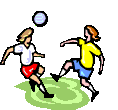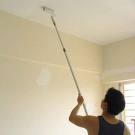REVISANDO VERBO TO BE
01- I (=eu) ____ working hard today
02- I (=eu) ____ looking for Pedro
03- I (=eu) ____ going to bed now
04- I (=eu) ____ always losing my keys
B) Complete the sentences with the following verbal form ARE (=complete com a forma verbal ARE
05- You (=você) ____ working hard today
06- You (=você) ____ looking for Pedro
07- You (=você) ____ going to bed now
08- You (=você) ____ always losing my keys
C)) Complete the sentences with the following verbal form ARE (=complete com a forma verbal IS)
09- He (ele) ____ working hard today
10- He (ele) ____ looking for Pedro
11- He (ele) ____ going to bed now
12- He (ele) ____ always losing my keys
D)) Complete the sentence with the following verbal form IS (=complete com a forma verbal IS)
13- She (ela) ____ working hard today
14- She (ela) ____ looking for Pedro
15- She (ela) ____ going to bed now
16- She (ela) ____ always losing my keys
E)) Complete the sentences with the following verb form IS (= complete com a forma verbal IS
16- It ____ ( torrada )toast
17- It ____ ( manteiga) butter
18- It ____ ( geléia) jam
19- It ____ ( croissant) croissant
20- It ____ ( iogurte) yoghurt 21- It ____ ( presunto) ham
22- It ____ ( queijo) cheese
23- It ____ ( suco de laranja) orange juice
F) Complete the sentences with the following verb form ARE (= complete com a forma verbal ARE)
24- We (=nós) ____ working hard today
25- We (=nós) ____ looking for Pedro
26- We (=nós) ____ going to bed now
27- We (=nós) ____ always losing our keys
G) Complete the sentences with the following verbal form ARE (= complete com a forma verbal ARE)
28- You (=vocês) ____ working hard today
29- You (=vocês) ____ looking for Pedro
30- You (=vocês) ____ going to bed now
31- You (=vocês) ____ always losing my keys
H)) Complete the sentences with the following verbal form ARE (= complete com a forma verbal ARE)
32- They (=eles ou elas) ____ working hard today
33- They (=eles ou elas) ____ looking for Pedro
34- They (=eles ou elas) ____ going to bed now
35- They (=eles ou elas) ____ always losing my keys
I) Responda:
1-A forma verbal AM (que em português pode ser traduzida como: sou, estou) você usou com quais pronomes.
1 (_ ) I
2 ( _) he, she e it
3 ( _) we, you e they
2-A forma verbal IS (que em português pode ser traduzida como: sou,é,está) você usou com quais pronomes.
1 (_ ) I
2 ( _) he, she e it
3 ( _) we, you e they
3-A forma verbal ARE (que em português pode ser traduzida como: é,está, são, estão, somos, estamos) você usou com quais pronomes.
1 (_ ) I
2 ( _) he, she e it
3 ( _) we, you e they
http://professorwalmir.blogspot.com.br/2007/08/verbo-to-be-simple-present-tense.html

























 She .
She . They .
They .  The chef a meal.
The chef a meal. Pete and Jane TV.
Pete and Jane TV.  He in the sea.
He in the sea.  They football.
They football.  Maggie .
Maggie . Is he playing the piano?
Is he playing the piano?  Are they ice-skating?
Are they ice-skating? 













